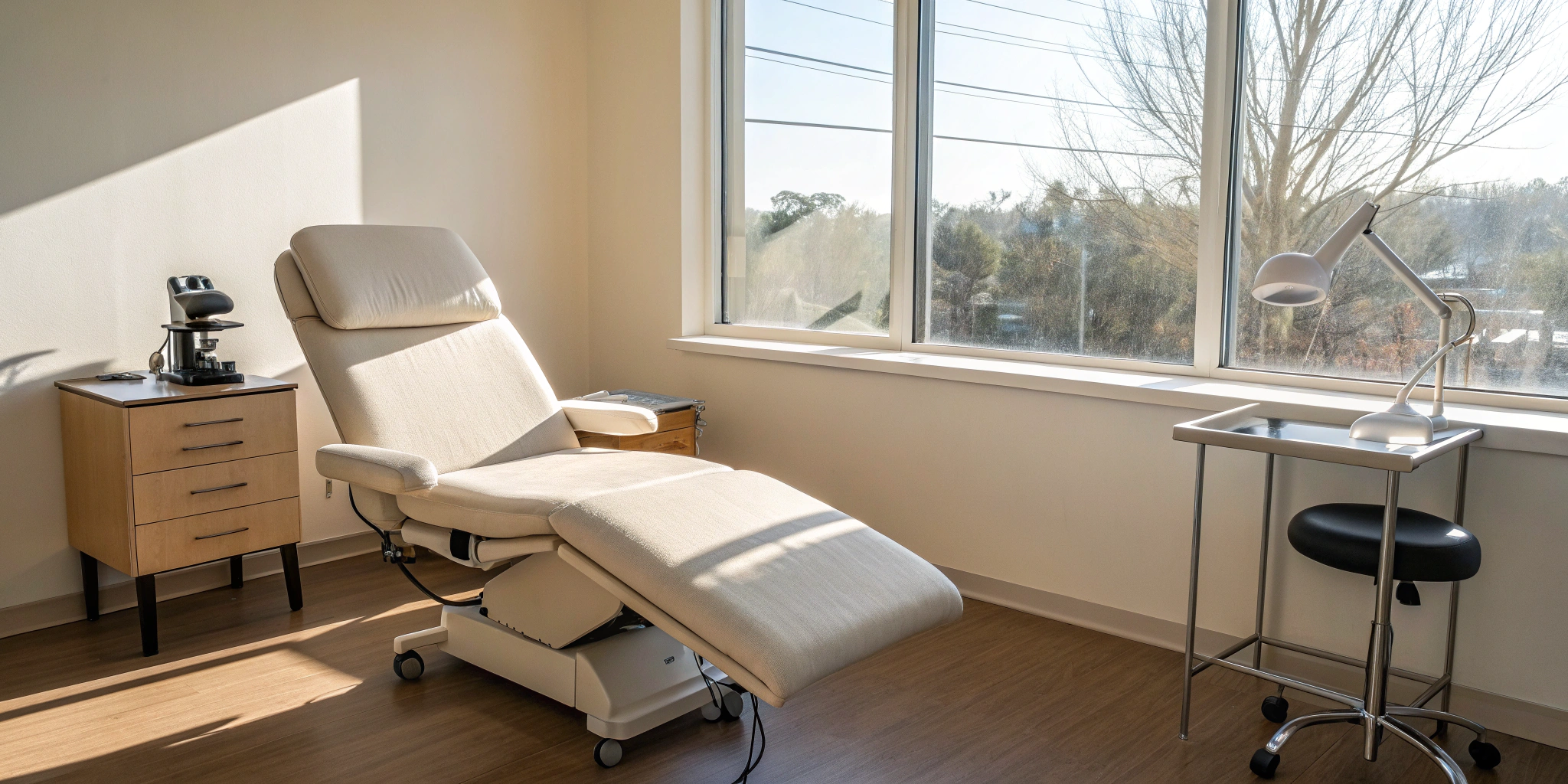As our understanding of autism evolves, so do our therapeutic philosophies. Many families are moving toward approaches that celebrate their child’s unique mind rather than trying to change it. But honoring neurodiversity doesn’t mean we can’t also give our children tools to make social interaction less stressful. This is about providing support, not forcing conformity. This guide explores how to build a plan that does both. We’ll cover how the philosophy behind child-led autism support Miami empowers children by following their interests, and how regenerative medicine can work in parallel to reduce internal stressors like neuroinflammation, helping your child feel more regulated and ready to connect on their own terms.
For many parents, one of the most challenging parts of autism is seeing their child struggle to connect with others. Eye contact, conversation, or group play can feel overwhelming, leaving children frustrated and parents searching for answers. Traditional therapies like speech and behavior intervention remain essential, but families are increasingly asking if regenerative medicine can provide extra support. At Miami Stem Cell, that question is at the heart of our work.
Why Social Skills Can Be Difficult
Autism spectrum disorder affects how the brain processes communication and social cues. A smile, tone of voice, or shift in body language—things most people take for granted—may not register the same way. This doesn’t mean children with autism don’t want to connect. Often, they simply don’t have the neurological tools to do it with ease. Parents describe these moments as both hopeful and heartbreaking. Their child wants to play or engage but becomes overwhelmed. Supporting these skills takes patience, therapy, and sometimes, innovative medical approaches.
Understanding the Genetic Factors of Autism
The Role of Genetics in Autism
When you receive an autism diagnosis for your child, it’s natural to wonder where it came from. The science points strongly toward genetics as a primary factor. According to Autism Parenting Magazine, “Autism can be passed down through genes.” However, it’s not a simple one-to-one inheritance. The development of autism is complex, involving an interplay between a child’s genetic predispositions and various environmental factors. Think of genetics as laying the foundation—it creates a susceptibility, but it doesn’t always mean a child will develop autism. This complexity is why you can see different expressions of autism even within the same family.
Parental Genetic Links and New Gene Changes
While both parents can pass on genetic variants associated with autism, research suggests that these genetic factors are often more significant than environmental ones. Sometimes, a child can have autism even if it doesn’t run in the family. This can happen due to new genetic changes, or “de novo” mutations, that occur in the child but are not present in the parents. These spontaneous changes help explain why autism can appear in families with no history of the condition. It’s a reminder that this is a biological condition, not the result of anything a parent did or didn’t do.
Genetic Testing for Related Factors
While there isn’t a single “autism gene” to test for, genetic testing can still be a valuable tool. It can identify specific genetic conditions that are associated with autism, such as Fragile X syndrome or Rett syndrome. Understanding these underlying factors can help create a more targeted and effective treatment plan. At Miami Stem Cell, we believe in a personalized approach. Comprehensive diagnostic tests can help us understand the complete picture of a child’s health, including metabolic and inflammatory markers that may influence their neurological function. This information allows us to tailor therapies that address the root causes, not just the symptoms.
A Guide to Autism Therapy and Support in Miami
Applied Behavior Analysis (ABA)
When exploring therapy options, you’ll almost certainly come across Applied Behavior Analysis (ABA). It’s one of the most established and widely used interventions for autism. According to Psychology Today, ABA is often considered a gold-standard treatment because it uses a structured approach to help children build essential skills. The focus is on improving communication, social interactions, and daily habits through positive reinforcement. By breaking down complex skills into smaller, manageable steps, ABA therapists can help children make steady progress in areas that were once challenging, providing them with the tools they need to interact more successfully with the world around them.
How ABA Therapy Works
ABA is not a one-size-fits-all program; it’s tailored to each child’s specific needs and goals. The therapy is often intensive, especially for young children. Many experts recommend 20 to 40 hours per week to achieve the best outcomes. This consistent practice helps reinforce new behaviors and skills until they become second nature. The goal is to equip children with the abilities they need to thrive in school, form friendships, and gain independence. A qualified therapist will work closely with your family to develop a plan that fits your child’s unique personality and challenges, making adjustments as they grow and learn.
The Importance of Early Intervention
With any developmental therapy, timing is key. Research consistently shows that therapy for autism is most effective when it begins early, ideally before the age of three. During these early years, a child’s brain is incredibly adaptable, making it the perfect time to introduce new skills and build strong neurological pathways. Early intervention can significantly change a child’s developmental trajectory, helping them acquire fundamental social and communication skills before learning gaps widen. Starting early gives your child the best possible foundation for future learning and social integration, setting them up for long-term success.
Child-Led, Neurodiversity-Affirming Support
As our understanding of autism evolves, so do our therapeutic approaches. A growing movement is shifting away from making autistic children conform to neurotypical standards and toward celebrating their unique minds. This neurodiversity-affirming model respects the different ways autistic individuals experience the world. Instead of focusing on “fixing” behaviors, it aims to provide support and accommodations that help them thrive as they are. This approach honors their natural communication styles, sensory needs, and interests, fostering self-esteem and reducing the anxiety that can come from feeling like you constantly have to change who you are.
Key Principles of a Child-Led Philosophy
A core principle of this modern approach is to “Let Autistic Kids Lead,” as advocated by resources like The Child Led SLP. This means therapy sessions are guided by the child’s own interests and motivations. If a child is passionate about dinosaurs, the therapist will use dinosaurs to teach communication and social skills. This method makes learning feel like play rather than work, which increases engagement and makes the new skills more likely to stick. It empowers children by showing them that their interests are valid and valuable, building a foundation of trust and collaboration between the child and the therapist.
Rethinking Harmful Therapy Goals
The neurodiversity movement also calls for a re-evaluation of some traditional therapy goals. Forcing behaviors like sustained eye contact, “quiet hands,” or a “calm body” can be incredibly stressful and counterproductive for an autistic child. These actions are often ways they self-regulate and cope with sensory overload. Forcing them to suppress these natural instincts can increase anxiety and hinder their ability to learn. Instead, the focus is on finding strategies that help the child feel safe and regulated, which in turn makes them more available for learning and social connection in a way that feels authentic to them.
Creative Therapy Methods in Miami
Beyond traditional models, Miami offers a variety of creative therapies that use a child’s interests to build social and emotional skills. These out-of-the-box approaches can be incredibly effective because they don’t feel like therapy at all. They provide a fun, low-pressure environment where children can practice social interactions naturally. From art and music to gaming, these methods tap into a child’s passions to help them connect with others who share their interests, building confidence and fostering genuine friendships along the way. These therapies recognize that learning happens best when a child is engaged and enjoying themselves.
Tabletop Role-Playing Games
It might sound unconventional, but tabletop role-playing games like Dungeons & Dragons (D&D) are becoming a popular therapeutic tool. Some local groups use what’s known as Therapeutic TTRPG to help children and teens practice collaboration, problem-solving, and perspective-taking in a structured, imaginative setting. Players have to work together to achieve a common goal, negotiate conflicts, and understand other characters’ motivations. It’s a brilliant way to build social and emotional intelligence while embarking on a fun adventure, making it an ideal setting for kids who struggle with less structured social interactions.
Music Therapy
Music is a universal language, and for many children with autism, it can be a powerful tool for connection and expression. Music therapy uses rhythm, melody, and improvisation to help children develop social and emotional skills. It can be particularly effective for nonverbal or minimally verbal children, giving them a way to communicate and interact without the pressure of words. Whether it’s through playing instruments together, singing, or writing songs, music therapy provides a joyful and engaging way for children to practice turn-taking, joint attention, and emotional expression in a supportive environment.
How Regenerative Medicine Complements Traditional Therapies
While behavioral and developmental therapies are the cornerstones of autism support, many families are looking for additional ways to help their children thrive. This is where regenerative medicine can play a complementary role. At Miami Stem Cell, our approach to autism focuses on addressing the underlying biological factors that can affect brain function, such as neuroinflammation. The goal is not to replace traditional therapies but to enhance their effectiveness. By working to create a healthier, more balanced internal environment, we can help set the stage for greater success in behavioral and educational programs.
Our treatments use umbilical cord-derived mesenchymal stem cells (MSCs) and exosomes, which are known for their powerful anti-inflammatory and regenerative properties. The theory is that by reducing inflammation in the brain, we can help improve neural connectivity and function. As one of our articles notes, “The idea is that by making the brain a calmer place, children might be able to make more progress with their social skills.” When a child’s brain isn’t in a constant state of stress, they may be better able to focus, learn, and engage with their therapists and peers, making the hard work they do in therapy even more impactful.
How Regenerative Medicine May Help
Stem cell therapy works at the cellular level. Mesenchymal stem cells, often sourced from Wharton’s Jelly, are known for reducing inflammation and improving how cells communicate. Since neuroinflammation and immune imbalance are thought to contribute to autism symptoms, creating a calmer environment in the brain may help unlock progress in social areas. While every child responds differently, some families report:
- More consistent eye contact
- Greater interest in group activities
- Reduced anxiety during interactions
- Better focus on conversations and tasks
It’s not a cure, but rather a potential boost—making other therapies more effective and helping children feel more at ease in social situations.
Building on Therapy, Not Replacing It
Regenerative medicine is not meant to replace proven approaches like speech or behavior therapy. Instead, it can work alongside them:
- Speech therapy may become more effective if a child is calmer and better able to focus.
- ABA therapy can take advantage of reduced stress to encourage group interaction.
- Occupational therapy may see gains as children regulate emotions more smoothly in busy environments.
By combining biological support with structured therapies, families create a stronger foundation for social growth.
Finding Financial and Community Support in Florida
Navigating the world of autism support involves more than just finding the right therapies; it also means building a strong network for your family. The financial and emotional costs can be significant, but thankfully, Florida offers a wealth of resources designed to lighten the load. From state-funded programs to local parent groups, there are systems in place to help you and your child thrive. Tapping into this network provides not only practical assistance but also the invaluable comfort of knowing you aren’t on this journey alone. It’s about creating a comprehensive support structure that addresses every aspect of your family’s well-being, allowing your child the best possible environment to grow.
Financial Assistance Programs
Covering the costs of therapy, specialized education, and medical care can be a major source of stress for families. Fortunately, several Florida-based programs can help. The Florida Health Insurance Premium Payment (FLHIPP) program, for instance, can assist with health insurance premiums. For educational expenses, scholarships like the Family Empowerment Scholarship offered through Step Up for Students and the AAA Scholarship Foundation provide funding for private schools or specialized services. Additionally, national grants from organizations like the United Healthcare Children’s Foundation or Autism Care Today can offer direct financial aid for medical treatments, helping ensure your child gets the care they need without overwhelming your budget.
Local Support Networks for Families
Connecting with other families who understand your daily realities is one of the most powerful forms of support. These networks offer a space to share triumphs, ask for advice, and find solidarity. Whether it’s a structured group meeting or a casual online forum, these communities provide a lifeline of emotional support and practical wisdom from parents who have been there. Building these connections helps reduce feelings of isolation and empowers you with shared knowledge, making the journey feel more manageable and less lonely. It’s here that you can find recommendations for local therapists, schools, and doctors from people you trust.
Parent Groups and Respite Care
Finding your tribe can make all the difference. Florida is home to many parent-led support groups tailored to specific needs. For example, Got4titude offers a community specifically for fathers of children with special needs, while Inclusive Mamas Connects creates a space for mothers to share their experiences. Beyond formal groups, many families find invaluable connections in local Facebook groups dedicated to autism support in their city or county. These communities are excellent for sharing resources and getting timely advice. Remember, taking care of yourself is also crucial, and these networks can often point you toward trusted respite care services to give you a much-needed break.
Educational Advocacy and Specialized Schools
Ensuring your child receives the right education is a top priority, and you don’t have to figure it out alone. Organizations like NextSteps Educational Consulting can guide families through the complexities of Individualized Education Programs (IEPs) and 504 plans, advocating for your child’s needs within the school system. For families seeking alternative educational environments, Florida has several specialized schools, such as Fusion Academy, The DesignED Thinking School, and the Palm Beach School for Autism. These institutions offer tailored curriculums and supportive settings designed to help students with autism succeed both academically and socially, ensuring their unique learning style is nurtured.
Resources for Autistic Adults
Support shouldn’t end when a child turns 18. The transition to adulthood brings a new set of challenges and opportunities, and Florida has resources dedicated to helping autistic adults lead independent, fulfilling lives. Organizations like The Arc offer programs focused on developing life skills, while Employ U specializes in job placement and career development. For those seeking community and social engagement, Els for Autism provides programs for adults. Furthermore, the Autism Housing Project helps families plan for long-term, supportive living arrangements. These resources are vital for empowering autistic adults to achieve their goals in housing, employment, and social integration.
The Miami Stem Cell Approach
Finding the right therapies and support systems is the foundation of a comprehensive autism care plan. At Miami Stem Cell, we see our role as a partner in that plan. Our innovative regenerative medicine treatments are not designed to replace essential therapies like ABA, speech, or occupational therapy. Instead, they are intended to work in harmony with them. By focusing on the underlying biological factors, such as neuroinflammation and cellular communication, our therapies can help create a more receptive foundation in the brain. This may allow your child to get more out of their existing therapeutic and educational programs, potentially making it easier for them to engage, focus, and acquire new skills.
We believe in a holistic strategy that combines biological support with the structured guidance your child receives from their therapists and educators. When a child’s internal systems are calmer and more regulated, they may be better equipped to handle the social and environmental challenges that once felt overwhelming. Families who have integrated our treatments into their care plan often report that their child seems more present, less anxious, and better able to connect during therapy sessions. By addressing health at the cellular level, we aim to support the hard work you and your child’s team are already doing, creating a stronger, more integrated path toward progress. If you’re curious about how this could fit into your child’s plan, we encourage you to contact us to learn more.
A Doctor Who Understands Families
Care at Miami Stem Cell is led by Dr. Eric Weiss, Medical Director of the Autism Program. Dr. Weiss is a former Navy Commander and board-certified surgeon who shifted his career to regenerative medicine after a personal turning point—his own son with autism benefited from stem cell therapy. That experience gave Dr. Weiss a unique perspective: he understands both the science and the emotions families bring to this journey. Over the past six years, he has treated more than 400 children with autism, creating tailored plans and ongoing support for each family. Parents often say this combination of expertise and empathy makes all the difference.
What Families Can Expect
When a family chooses Miami Stem Cell, the process is designed to be thorough and supportive:
- Personalized consultation to review history and set clear goals
- Safe, carefully monitored infusion protocols tailored to each patient
- Follow-up evaluations to track changes in speech, focus, and social skills
- Guidance for parents on integrating treatment with therapies at home and school
You can find more information about our approach on our Autism page.
Moving Toward Connection
For children with autism, improving social skills isn’t about forcing them to fit in—it’s about helping them feel more comfortable and confident when engaging with others. Regenerative medicine may offer a valuable layer of support, making those everyday interactions less stressful and more rewarding. At Miami Stem Cell, families find more than medical treatment—they find guidance, hope, and a partner in their child’s growth. With the expertise of Dr. Weiss and a team dedicated to autism care, social skills can become a bridge to stronger connections. To learn more or schedule a consultation, visit our Autism page today.
Frequently Asked Questions
Is stem cell therapy meant to replace my child’s current therapies like ABA or speech therapy? Not at all. Think of it as a powerful partner to the therapies your child is already doing. While behavioral and speech therapies build skills from the outside in, regenerative medicine works from the inside out. The goal is to address underlying biological factors, like neuroinflammation, that can make learning and social engagement more difficult. By helping to create a calmer, more regulated internal environment, this treatment can make your child more receptive to the great work they’re already doing with their therapists.
How can a biological treatment actually help with something as complex as social skills? It’s a great question that gets to the heart of our approach. Many children with autism experience a level of neuroinflammation, which you can think of as a kind of constant, low-level stress on the brain. This can make it harder to process social cues, focus on conversations, or manage sensory input. Our treatments use stem cells and exosomes known for their powerful anti-inflammatory properties. By reducing that internal “static,” we can help the brain function more efficiently. For some children, this means they feel less overwhelmed in social situations, making it easier for them to connect and engage.
My family believes in a neurodiversity-affirming philosophy. How does this treatment fit with that? This is such an important point, and it aligns perfectly with our philosophy. We are not trying to change who your child is. This treatment is about reducing internal discomfort. Forcing a child to suppress behaviors like stimming can increase their anxiety, but what if we could address the underlying reasons they feel the need to self-regulate so intensely? By calming inflammation and supporting cellular health, we aim to help your child feel more comfortable and regulated in their own body. When a child feels better internally, they are often more available to learn and connect with the world in a way that is authentic to them.
What makes the approach at Miami Stem Cell different for children with autism? Our program is led by Dr. Eric Weiss, whose passion for this work is both professional and deeply personal. As a board-certified surgeon, he brings incredible medical expertise, but as the father of a son with autism who benefited from stem cell therapy, he brings a level of understanding and empathy that you can’t learn from a textbook. He has personally navigated this journey with his own family, which allows him to connect with parents on a unique level and create treatment plans that are both scientifically sound and compassionately delivered.
What does the treatment process actually look like for a child and their family? We designed the entire process to be as supportive and clear as possible. It starts with a personal consultation with our team to discuss your child’s history and your family’s goals. From there, we create a personalized treatment protocol. The therapy itself involves a safe, carefully monitored infusion process. Afterward, we don’t just send you on your way; we schedule follow-up evaluations to track progress and provide guidance on how to best integrate the treatment with your child’s existing therapies and school life. We see ourselves as part of your child’s long-term support team.
Key Takeaways
- Prioritize Neurodiversity-Affirming Support: Modern therapeutic approaches focus on working with your child’s unique strengths and interests rather than forcing conformity. Child-led strategies make learning feel like play, which can increase engagement and build self-esteem.
- View Regenerative Medicine as a Complementary Tool: Stem cell therapy is not a replacement for behavioral or developmental therapies but can work alongside them. By addressing underlying biological factors like neuroinflammation, it can help create a better foundation for your child to benefit from their existing therapeutic programs.
- Build a Comprehensive Support System: Your child’s progress is supported by a strong network. Actively seek out financial aid programs, connect with local parent groups for emotional support, and use educational advocates to ensure your child’s needs are met in school.
Related Articles
- Autism and Social Skills: Regenerative Medicine Support | Miami Stem Cell
- Autism Stem Cell Therapy: Benefits, Safety & Support | Miami Stem Cell
- Autism Support & Care – Stem Cell Therapy | Miami Stem Cell






